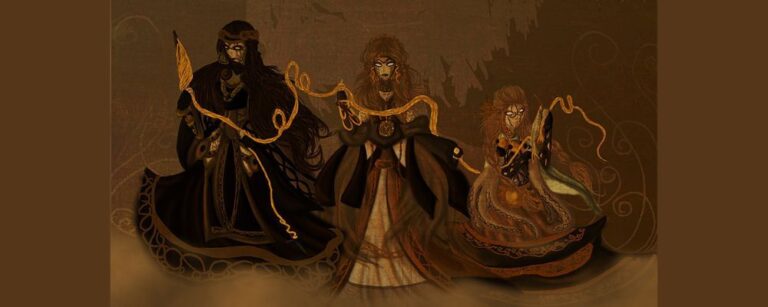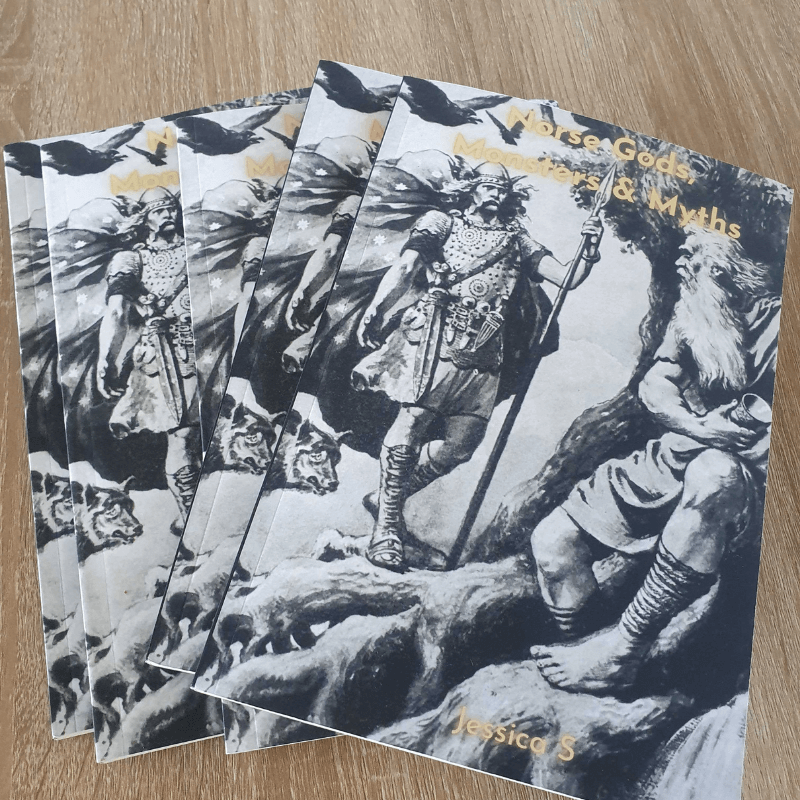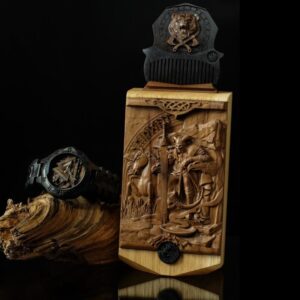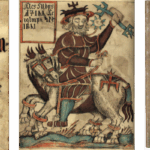The Grimnismal in the Poetic Edda is an important text for understanding Norse Mythology. In the text, Odin, in the guise of a man called Grimnir, describes the realms of the gods and the cosmology of the Norse universe.
These descriptions are revealed in 54 stanzas that are written in ljodahattr meter, which was typically used for revealing wisdom. You can read what the Grimnismal says about Asgard here and about Norse cosmology here.
Scholars believe that these stanzas were written in the 10th century, but they are introduced by a section of prose known as the story of Odin and Geirroth that appears to have been written in the 12th or 13th centuries. But what information does this story hold and why was it coupled with these stanzas of wisdom?
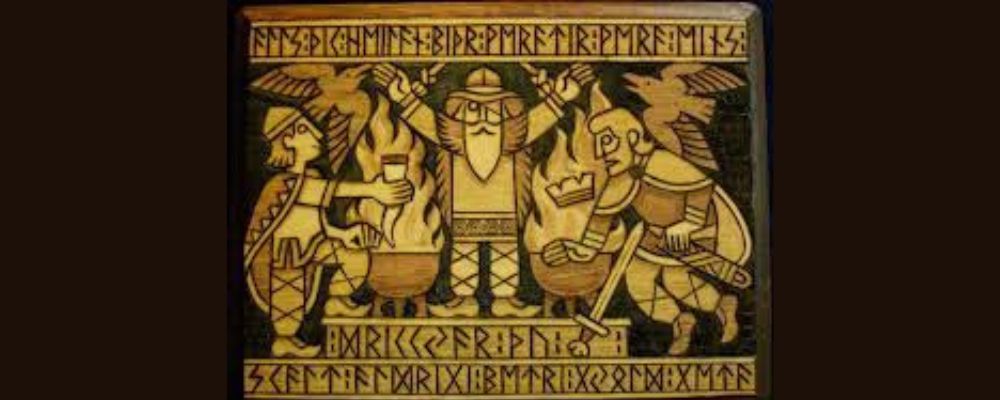
Odin Looks Down from Hlithskjolf
The story begins with Odin sitting on his throne in Asgard, Hlithskjolf, from where he can see out across all existence. At this moment, he is checking in on a pair of brothers, Agnar and Geirroth, that he and his wife Frigg fostered years earlier.
According to the story, Agnar and Geirroth were two sons of a king from an unnamed region. The two decide to go fishing, but a great storm carries them out into the sea and wrecks their boat on a strange coast. There they are saved by an old peasant couple.
For some reason, the peasant couple decides that they will foster the boys separately. The woman takes charge of Agnar, who is ten years old and destined to follow his father as king. The man fosters eight-year-old Geirroth and decides to teach him unspecified wisdom. The couple are, of course, Frigg and Odin in disguise.
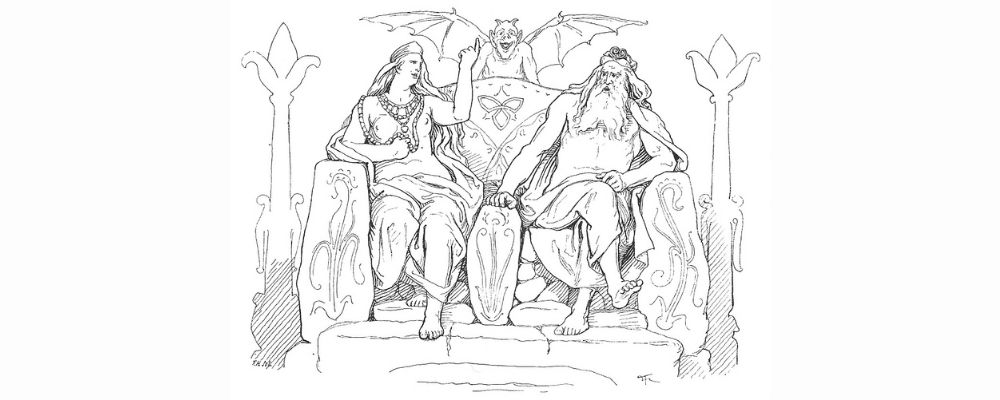
The boys stay for one winter. When the sea calms, Odin makes a boat for the boys to send them home. But before the boys depart, Odin whispers a secret in Geirroth’s ear.
When the pair arrive back on the shores of their kingdom, Geirroth jumps out of the boat quickly. Using the wisdom he learned from the old man, he cursed his brother Agnar to go where evil dwells and pushed the boat back out to see.
He returned to his kingdom only to find that his father had died over the winter, and he was proclaimed king.
Now, years later, Odin boasts that while Frigg’s protégé Agnar is currently living in a cave parenting children to a giantess like a savage, his protégé Geirroth is ruling the kingdom meant for his brother.
This may be one of the important themes of the story. Frigg was famously a seeress, but she chose never to reveal what she saw. She may have decided to foster Agnar because she knew that he was destined to be a king and wanted to prepare him for the task.
Odin, who always liked to challenge, seems to have wanted to see if he could change written fate by enthroning Geirroth in Agnar’s place. That is why he taught the bot wisdom and shared a secret that caused Geirroth to betray his brother.
But do even gods have the power to change the course of fate?
Odin Visits Geirroth
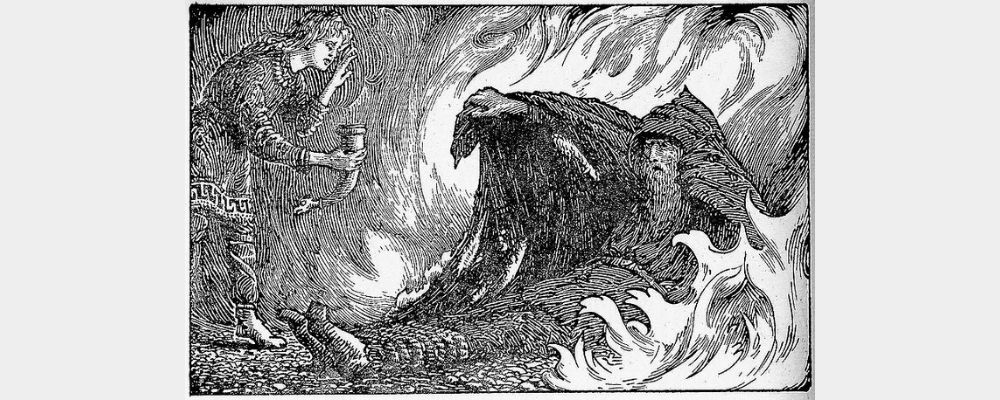
Frigg is not particularly impressed by her husband’s bragging, so she points out that Geirroth is a miserly king, so terrible that he even ignores the rules of hospitality and lets his guests starve when he thinks that too many have arrived. She is pointing out that Odin may have changed fate, but not for the better.
Wanting to prove her wrong, Odin tells Frigg that he will visit Geirroth in disguise to prove that the king knows how to treat guests properly. The couple makes an unspecified wager on the outcome of the visit.
Wanting to ensure that things go as she anticipates, Frigg sends her maid servant Fula to Geirroth to warn him that a dangerous sorcerer is heading to his kingdom with the intention of bewitching him. She tells Geirroth that he will know that man because no dogs will bar when they see him. This is a characteristic of all the gods that Frigg uses to her advantage to complete her ruse.
Soon, Odin arrives appearing as a traveler in a blue cloak called Grimnir. When he arrives and asks to visit Geirroth, the guard dogs do not bark. Consequently, Geirroth has him seized and bound for questioning. When Grimnir will not reveal his purpose, Geirroth has him tortured by having him sit between two fires so hot that they burn off his cloak.
Grimnir is kept in this sorry state for eight days without food or drink, and refusing to speak. Eventually, Geirroth’s own son, whom he has named Agnar to honor the brother he betrayed, takes pity on the man and brings him a horn of mead.
It seems that this was the respite that Odin was waiting for. He spoke to the boy, telling him about the realms of the gods and the form of the universe. He also promised that boy that he would be rewarded for his mercy and kindness.
When Geirroth appeared to see what had happened, Odin revealed himself, rebuked Geirroth for his unkinglike behavior, and predicted his death. Geirroth was so terrified by this that he drew his sword, but he immediately stumbled, and the sword twisted in his hand. He fell on the blade and died.
Geirroth’s son Agnar was proclaimed king, and fate righted itself, by placing Agnar on the throne.
So is the moral of the story the importance of welcoming guests in Norse culture, or is it that even the gods can only delay fate? Fate does not change; it will always return to its proper course.
Why Tell the Story of Geirroth?
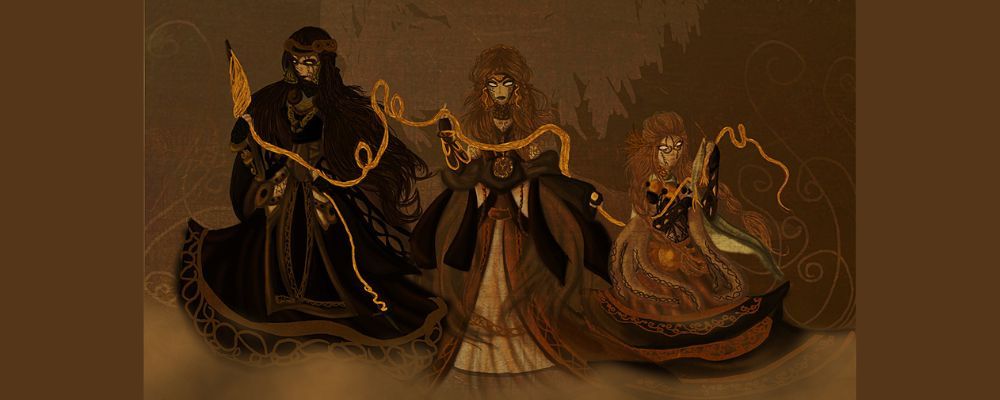
Why did the 12th or 13th-century Vikings couple the stanzas of wisdom about Asgard and the cosmos with the story of Geirroth? Does it just set the scene to allow Odin to impart his wisdom? It seems a strange setting since neither Geirroth nor Agnar is asking Grimnir-Odin about these things.
The story is surely a reminder of the importance of hospitality, and the more powerful you are the more important it is to maintain. But is the deeper message about fate, and how it cannot be diverted even by the gods. This is why Odin cannot avoid Ragnarok, even though he knows the prophecy.
This might make sense alongside stanzas describing what existence looks like since the Vikings believed that fate was an essential element of the cosmos. You can read more about Norse ideas of destiny here.
